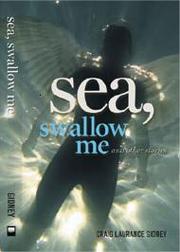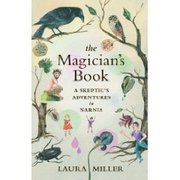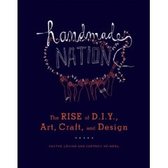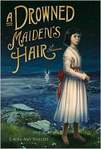Michael Dirda wrings his hands over being underwhelmed by Neil Stephenson’s latest:
Alas, I can’t even lope slowly alongside the herd. Oh, Anathem will certainly be admired for its intelligence, ambition, control and ingenuity. But loved? Enjoyed? The book reminds me of Harold Brodkey’s The Runaway Soul from 17 years ago — much anticipated, in places quite brilliant, but ultimately grandiose, overwrought and pretty damn dull.
…
Alas, there’s worse. I also find the book to be fundamentally unoriginal. If you’ve read Russell Hoban’s brilliant Riddley Walker, you’ve seen punning word coinages done better and more poetically. If you’ve read Walter M. Miller Jr.’s sf classic A Canticle for Leibowitz, you know that monasteries are havens of civilization and science (in Anathem‘s case, of high-level mathematics and theoretical physics). Most of all, if you’ve read Gene Wolfe’s four-part Book of the New Sun, you can appreciate how this kind of grand encyclopedic vision, with mysteries at its core, can be brought off with far more elegance, wit and artistry. All these, by the way, are masterpieces — and not just of "their genre."
Wowza. Anyone read it yet? Is he right?
Updated: And a very different take from Martin Lewis at Strange Horizons today:
There has always been a strong pedagogic element to Stephenson’s work; not for nothing is The Diamond Age subtitled A Young Lady’s Illustrated Primer. This book takes it to new levels. Here we have not just his infamous digressions—fascinating as always—but a narrative that is predominantly told in formal and semi-formal dialogue after the model of the ancient Greeks. Even after the novel is finished, even after the glossary, we are presented with three "calca," lessons in mathematics and philosophy for the reader that are only tangentially related to the story. All this, coupled with the boarding school atmosphere of the Concent, the adolescent voice of the protagonist, and the birds and bees approach to relationships, gives Anathem something of the air of a Young Adult novel. In fact, with its longeurs and constant debate, it occasionally resembles an unholy hybrid of The Republic and Harry Potter and the Half-Blood Prince, and it can be every bit as tediously wearing as that sounds. As Stephenson signals from the outset, nothing is left unexplained.
Anathem may be a bildungsroman with teenage overtones but Stephenson’s sights are clearly set beyond the YA market. He gives the impression of a Geek Philosopher King who has set out to write a fictional version of one of those massive, iconic works of popular non-fiction such as Guns, Germs and Steel or Gödel, Escher, Bach and he has done an astonishingly good job of realising this ambition. The novel does have a tendency to get bogged down in detail and there are intermittent bouts of tone deafness on Stephenson’s part—both isues also present in his earlier work—but this doesn’t detract from the impact of his achievement. Since Anathem writes its own rulebook to be judged by, it has succeeded in making itself almost entirely critic-proof anyway.
See the comments section as well. I’m now back to looking forward to it.
 Craig Gidney is a fabulous person, and a fabulous writer. We published his story "The Safety of Thorns" in Say… have you heard this one? (he talked about it here) and consider him a dear friend. He’s having a tough time at the moment, as one of those far-too-many writers without health insurance.
Craig Gidney is a fabulous person, and a fabulous writer. We published his story "The Safety of Thorns" in Say… have you heard this one? (he talked about it here) and consider him a dear friend. He’s having a tough time at the moment, as one of those far-too-many writers without health insurance.


